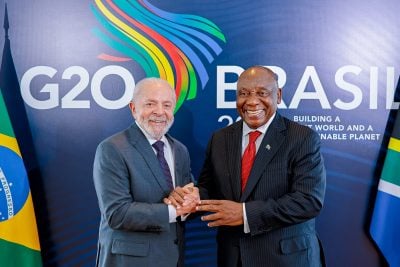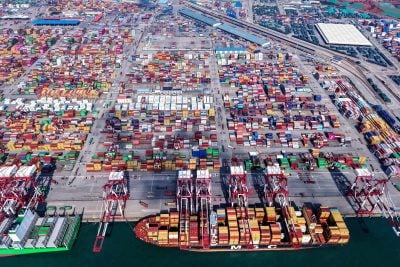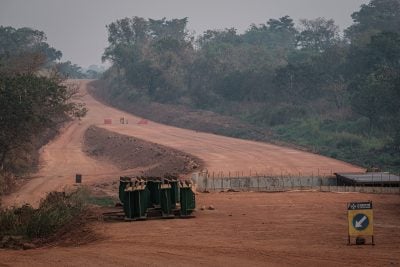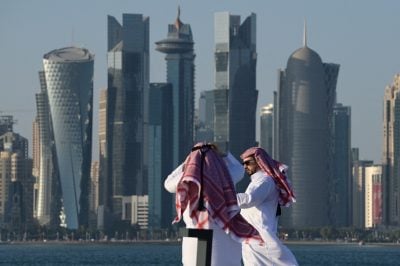William Ruto was declared the winner of Kenya’s general election held on 9 August 2022, with 50.4% of the vote to Raila Odinga’s 48.8%.
Voters cast ballots for president, the National Assembly, the Senate, county governors and the 47 county assemblies.
The two leading candidates in the presidential race were Ruto, the incumbent deputy-president (United Democratic Alliance/Kwanza alliance), and Odinga, a former prime minister (Orange Democratic Movement/Azimio alliance).
Low turnout, pragmatic voting
The election turnout of 60% was 20% lower than in 2017, and took place amidst low trust, resignation and cynicism amongst the electorate, leading to more pragmatic, tactical voting.
Meanwhile, the 2.5m new voters registered was well below the target of 6m. This reflects a general decline in political engagement that commenced after the high point of a new constitution in 2010.
Voters expect less wholesale transformation from elections, and instead voted pragmatically, supporting the candidate whom they believed offered the best deal in terms of economic rewards and social services.
This was evident in both candidates’ inflated promises regarding health, education, housing, internet connectivity and social assistance, as well as the victorious Ruto’s populist framing of himself as a self-made “hustler” up against the “big men” and dynastic families, such as Odinga’s, which have dominated Kenyan politics since independence.
This was effective despite Ruto’s enormous personal wealth, complex political history and insider position as deputy-president.
Kenya’s youth had an undersized electoral impact, but their future impact will be large.
Under-35s comprise 75% of Kenya’s population, but just 40% of registered voters. This underrepresentation is often taken as apathy, but is more likely the result of dissatisfaction with the status quo.
While the 14% unemployment rate amongst 15- to 24-year-olds is more than double that for the labour market as a whole, Kenya’s youth are increasingly educated, international, online, engaged and radical. They are a well of enormous economic and political potential.
Economic concerns outweigh ethnic rivalries
While previous elections have been dominated by ethnic and regional loyalties, a deteriorating economic situation has caused economic concerns to supersede these traditional cleavages.
For the first time neither of the main candidates was from the dominant Kikuyu tribe, which has provided three out of the four Kenyan presidents since independence in 1963. Both campaigns prioritised Kenya’s economic challenges over pronouncements of ethnic, regional or party loyalty.
This was a necessary response to Kenya’s very high debt and cost of living, which several sources indicated were the primary electoral concerns in 2022. Government debt-to-GDP has almost doubled since 2013 to 67%, while higher inflation at around 6.5% forced the government to increase subsidies for maize flour, petrol and fertiliser in the months leading up to the election.
Inequality was a related issue, especially for Ruto, whose bottom-up economic model strongly decried inequality, class divisions and undignified work, and promised to decriminalise informal livelihoods.
Building on the widespread cynicism that framed the 2022 election, corruption was not a front-rank issue for the major candidates. While both candidates expressed a “zero tolerance” approach to corruption and vowed to clean up Kenyan politics, there have been allegations of corruption against both of them. Both deny the allegations.
“Rutonomics” will not be easy to implement
Kenya’s major macroeconomic challenges are high debt and rising inflation. It will be difficult for Ruto to address these whilst also implementing “Rutonomics” – his pledges to benefit the poor and boost the prospects of the country’s “hustler nation”.
Economic concerns dominated the 2022 election, but it is not clear how the headline macroeconomic challenges can be addressed. Much of Kenya’s inflation has been imported from abroad, while Ruto’s refusal to restructure Kenya’s external debt leaves him dependent on tax revenue and spending reduction to meet repayments.
His pledges – especially those related to universal health, education and social security – will boost productivity over time if effectively implemented, but they will be expensive. Tax rises to pay for them are likely to antagonise his supporters, and run counter to his manifesto.
Ruto played strongly to Kenya’s agricultural heartland, as well as the enormous network of informal MSMEs, and plans to use these sectors to greatly expand the economy as part of a bottom-up economic model.
Ruto has pledged to grant a trading licence and location to anybody who requests one, as well as create a $420m per annum “hustler fund” to extend affordable credit to MSMEs. He has also pledged to cut agricultural imports by 30%, raising the productivity of the sector through new capital and financial management instruments.
If successful, these pledges could provide substantial relief from poverty and insecurity, though the prevailing severe drought, unreliable institutions and international economic volatility present significant headwinds.
Ruto’s win is exciting for the most vulnerable in Kenyan society, but if he fails to deliver on his manifesto political trust may be difficult to win back and cause social unrest in the medium term.
Ruto presented himself as a man of the people, with generous social security commitments, bottom-up economic policy and strong evocation of class consciousness building a powerful base of support amongst the youth, the poor, the unemployed and those implicated in fringe urban and rural economies.
Having ousted the business-as-usual candidate, expectations are high that Ruto will improve his supporters’ standard of living. If he fails, these expectations may deteriorate into a more volatile, confrontational and extreme politics, likely to fracture in the 2027 election.
Ruto has also committed to full devolution under the constitution. This will give county governments substantial responsibilities for health, agriculture, water and urban environments. They will become more significant economic and political players, with already-large inter-county differences in performance becoming even greater.
This article is an abridged version of “Rutonomics: Now the hard work begins” published by IC Intelligence.
Want to continue reading? Subscribe today.
You've read all your free articles for this month! Subscribe now to enjoy full access to our content.
Digital Monthly
£8.00 / month
Receive full unlimited access to our articles, opinions, podcasts and more.
Digital Yearly
£70.00 / year
Our best value offer - save £26 and gain access to all of our digital content for an entire year!

 Sign in with Google
Sign in with Google 





